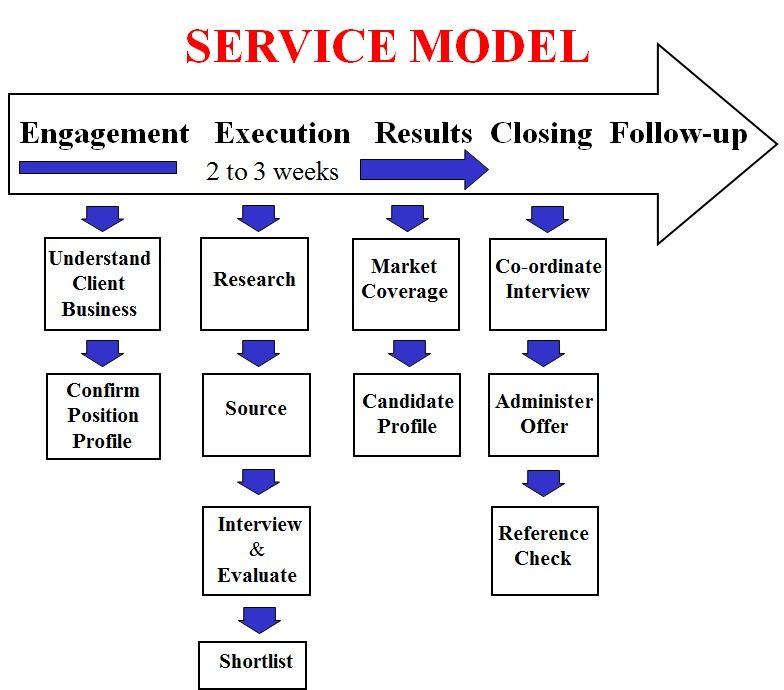How to Evaluate a Job Offer
You have a job offer to consider. When you were working hard on, and worrying about getting the job, you do not think making a decision would be this difficult. This is serious matter as it affects your long-term career. The job that you accept may be yours for a long time to come.

What are some of the more significant factors to consider? Compensation, benefits, convenience, organisation, size of organization, your boss / co-workers, staff turnover or career opportunities? Or could it be the corporate culture or the length of your commute? What about your future superior and team-members - will working with them be pleasant? There are a number of factors to consider and only some are negotiable.
Compensation
The importance of compensation cannot be under-estimated as it gives you a sense of satisfaction. You want to make sure that you are being paid what we are worth. At the same time, you need the money to pay the bills.
Many companies will not talk about pay until they have decided to hire you. It is important to find out what other people are making for the same work in the same industry. You need to have an estimate of what the job should pay, to decide if the offered compensation is reasonable. Ask around: your friends, your headhunters, check out the recruitment advertisements for a ball-park estimate or some salary surveys, if you can get hold of them. You can look at other occupational information as well. If other aspects of the job appeal to you, you can try to negotiate the offer. Consider the benefits as well as these will add to your basic salary.
The organization

The information on an organization can help you to decide whether it is a good place for you to work. This includes the organization’s business or activity, financial condition, age, size, and location. You can generally get an organisation’s background information, especially a large organization, on its website or by reading its annual report (call its investor relations department for a copy or download a copy for the Singapore Stock Exchange website.)
If possible, speak to current or former employees of the company. If you know anyone who has any dealing with the company, such as a consultant, a supplier, a vendor or a customer of the company, ask them for inputs about the company.
Stories about an organization in magazines and newspapers can tell a great deal about its successes, failures, and plans for the future. You can identify articles on a company by looking under its name in periodical or computerized indexes in libraries. However, it probably will not be useful to look back more than 3 years or more.
How will the size of the organization affect you?
The larger organizations offer a greater variety of training programs and career paths, more advancement prospects and better benefits than do small firms. Large employers also may have more advanced technologies. However, many jobs in large firms tend to be highly specialized and focused.
Jobs in small firms may offer broader authority and responsibility, a closer working relationship with top management, and a chance to clearly see your contribution to the success of the organization.
Culture
Webster defined ‘culture’ as "the set of shared attitudes, values, goals, and practices that characterizes a company or corporation, "culture should be an important factor in your decision whether to accept a job offer. If you value your personal time, a company with a culture that promotes late hours may not be suitable for you. Does this company believe in "winning at all costs?" Does this fit into your personal belief? Is the company in the gambling, tobacco or wine industry? Are you personally for such activities? If not, you may not want to join companies involved in such activities.
Commute Time

You have to take into account the length of your commute. What may have seemed like a decent distance to travel for a job interview will begin to wear you out when you have to make that trip twice a day, five days a week, especially during the peak hour traffic. Do you fancy spending between 2 and 3 hours commuting to and from your work? Definitely not, though there are some people who would not mind. Are you one of them?
Your Boss/Co-Workers

All the employees in a company will undeniably affect the quality of the time you spend at work. A conducive and friendly team will generally make it easier for you to work. You would not want to work with team-members who enjoy shouting at each other, would you? Or team-members who are unco-operative, gossip behind your back or make life difficult for you.
If you have a chance to tour the office, observe if the employees seem friendly and happy. Check with people who may have some insider information about the company.
Staff Turnover
A high turnover can mean dissatisfaction with the nature of the work or something else about the job. Do find out more, if possible. Discuss with the HR Manager. Have a frank talk with the manager. If you detect something is not right, do be cautious.
Career Opportunities

A good job offers you many opportunities to learn new skills, increase your salary, and rise to positions of greater authority and responsibility. Many people quote their reason for leaving a job as: “Lack of career advancement opportunities.” So, you would like to be careful to ensure that your future employers can offer a decent career advancement opportunity.
Do check with the HR Manager or the Hiring Manager about the career advancement opportunities offered.
The employer should give you some idea of promotion possibilities within the organization. What is the next step on the career ladder? If you have to wait for a job to become vacant before you can be promoted, how long does this usually take? When opportunities for advancement do arise, will you compete with applicants from outside the company? Can you apply for jobs for which you qualify elsewhere within the organization, or is mobility within the firm limited?
Accepting or Declining the Offer
Whether you choose to accept or reject a job offer, you must inform the employer who has made that offer. This should be done formally, in writing, and if you wish by telephone as well. If your answer is "yes" it's obvious why you'll want to make a good impression with your future employer. But, why is it important to be polite to someone you do not plan to work for? Well, you do not know where your future will take you. You may at some point wind up with that employer as a superior, a colleague, a client, or even your next door neighbour. You certainly do not want to leave a bad impression, or to burn the bridge, so to speak.
You have a job offer to consider. When you were working hard on, and worrying about getting the job, you do not think making a decision would be this difficult. This is serious matter as it affects your long-term career. The job that you accept may be yours for a long time to come.

What are some of the more significant factors to consider? Compensation, benefits, convenience, organisation, size of organization, your boss / co-workers, staff turnover or career opportunities? Or could it be the corporate culture or the length of your commute? What about your future superior and team-members - will working with them be pleasant? There are a number of factors to consider and only some are negotiable.
Compensation

The importance of compensation cannot be under-estimated as it gives you a sense of satisfaction. You want to make sure that you are being paid what we are worth. At the same time, you need the money to pay the bills.
Many companies will not talk about pay until they have decided to hire you. It is important to find out what other people are making for the same work in the same industry. You need to have an estimate of what the job should pay, to decide if the offered compensation is reasonable. Ask around: your friends, your headhunters, check out the recruitment advertisements for a ball-park estimate or some salary surveys, if you can get hold of them. You can look at other occupational information as well. If other aspects of the job appeal to you, you can try to negotiate the offer. Consider the benefits as well as these will add to your basic salary.
The organization

The information on an organization can help you to decide whether it is a good place for you to work. This includes the organization’s business or activity, financial condition, age, size, and location. You can generally get an organisation’s background information, especially a large organization, on its website or by reading its annual report (call its investor relations department for a copy or download a copy for the Singapore Stock Exchange website.)
If possible, speak to current or former employees of the company. If you know anyone who has any dealing with the company, such as a consultant, a supplier, a vendor or a customer of the company, ask them for inputs about the company.
Stories about an organization in magazines and newspapers can tell a great deal about its successes, failures, and plans for the future. You can identify articles on a company by looking under its name in periodical or computerized indexes in libraries. However, it probably will not be useful to look back more than 3 years or more.
How will the size of the organization affect you?
The larger organizations offer a greater variety of training programs and career paths, more advancement prospects and better benefits than do small firms. Large employers also may have more advanced technologies. However, many jobs in large firms tend to be highly specialized and focused.
Jobs in small firms may offer broader authority and responsibility, a closer working relationship with top management, and a chance to clearly see your contribution to the success of the organization.
Culture
Webster defined ‘culture’ as "the set of shared attitudes, values, goals, and practices that characterizes a company or corporation, "culture should be an important factor in your decision whether to accept a job offer. If you value your personal time, a company with a culture that promotes late hours may not be suitable for you. Does this company believe in "winning at all costs?" Does this fit into your personal belief? Is the company in the gambling, tobacco or wine industry? Are you personally for such activities? If not, you may not want to join companies involved in such activities.
Commute Time

You have to take into account the length of your commute. What may have seemed like a decent distance to travel for a job interview will begin to wear you out when you have to make that trip twice a day, five days a week, especially during the peak hour traffic. Do you fancy spending between 2 and 3 hours commuting to and from your work? Definitely not, though there are some people who would not mind. Are you one of them?
Your Boss/Co-Workers

All the employees in a company will undeniably affect the quality of the time you spend at work. A conducive and friendly team will generally make it easier for you to work. You would not want to work with team-members who enjoy shouting at each other, would you? Or team-members who are unco-operative, gossip behind your back or make life difficult for you.
If you have a chance to tour the office, observe if the employees seem friendly and happy. Check with people who may have some insider information about the company.
Staff Turnover
A high turnover can mean dissatisfaction with the nature of the work or something else about the job. Do find out more, if possible. Discuss with the HR Manager. Have a frank talk with the manager. If you detect something is not right, do be cautious.
Career Opportunities

A good job offers you many opportunities to learn new skills, increase your salary, and rise to positions of greater authority and responsibility. Many people quote their reason for leaving a job as: “Lack of career advancement opportunities.” So, you would like to be careful to ensure that your future employers can offer a decent career advancement opportunity.
Do check with the HR Manager or the Hiring Manager about the career advancement opportunities offered.
The employer should give you some idea of promotion possibilities within the organization. What is the next step on the career ladder? If you have to wait for a job to become vacant before you can be promoted, how long does this usually take? When opportunities for advancement do arise, will you compete with applicants from outside the company? Can you apply for jobs for which you qualify elsewhere within the organization, or is mobility within the firm limited?
Accepting or Declining the Offer
Whether you choose to accept or reject a job offer, you must inform the employer who has made that offer. This should be done formally, in writing, and if you wish by telephone as well. If your answer is "yes" it's obvious why you'll want to make a good impression with your future employer. But, why is it important to be polite to someone you do not plan to work for? Well, you do not know where your future will take you. You may at some point wind up with that employer as a superior, a colleague, a client, or even your next door neighbour. You certainly do not want to leave a bad impression, or to burn the bridge, so to speak.
Comments
Do you have any comments or inputs? We welcome your comments and inputs on this article.
Cheers,
The Singapore Headhunter






No comments:
Post a Comment